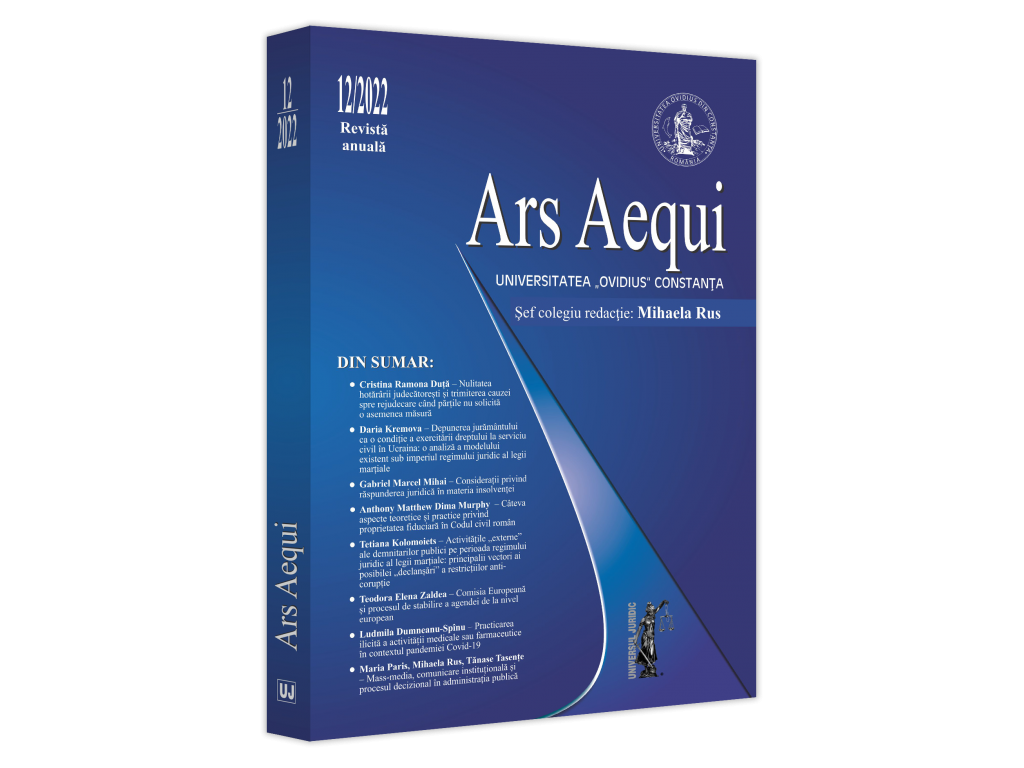Activităţile „externe” ale demnitarilor publici pe perioada regimului juridic al legii marţiale: principalii vectori ai posibilei „declanşări” a restricţiilor anti-corupţie
„External” activities of public officials during the period of the legal regime of martial law: the main vectors of the possible „releasing” of anti-corruption restrictions
Author(s): Tetiana KolomoietsSubject(s): Law, Constitution, Jurisprudence, Civil Law, Public Administration, Military policy, Corruption - Transparency - Anti-Corruption
Published by: Universul Juridic
Keywords: Anti-corruption” restriction; public service; „external” activities of public officials; legal regime of martial law; relevance; regulatory model; legislation; corruption prevention;
Summary/Abstract: The possibility and expediency of establishing an „additional” regulatory model of „anti- corruption” restriction on the „external” activity of public officials for the period of the special legal regime - the martial law regime - is justified. Taking into account the significant changes in organizational support, the functioning of the public service in the conditions of the legal regime of martial law, the release of employees from the performance of official duties (the main activity in the position of the public service) and their transfer to lay-off without retention of pay (and, therefore, the absence (minimization) of payments to meet life needs), the state must provide a legal alternative to the main activity of employees. The introduction of such an alternative and the establishment of an „additional” normative model of „anti-corruption” restrictions on the „external” activity of public officials must take into account that such an alternative must be temporary (for the period of martial law), forced („pause” in the main activity of a person in a public service position), different („external” concerning the employee's main activity), targeted (to obtain sufficient funds to meet life needs and without a conflict of private interests and public interests). The expediency of implementing an „additional” („soft”) model of „anti-corruption” restriction on the „external” activity of public officials along with the „primary” („basic”) regulatory model of such restriction is substantiated. The application of such a model, in general, and for each employee specifically, is possible, provided that all mandatory requirements are met, which characterizes this model as „a possible alternative for the period of martial law.” Normative consolidation of this model should be carried out in coordination with the „anti-corruption standards” of the public service, the legal basis of the martial law regime and the provisions of the codified tort law in terms of the state's response to its violation. This approach will ensure the relevance of this limitation model to the fundamental requirements of the martial law regime.
Journal: REVISTA ARS AEQUI
- Issue Year: 2022
- Issue No: 1
- Page Range: 107-114
- Page Count: 8
- Language: Romanian
- Content File-PDF

